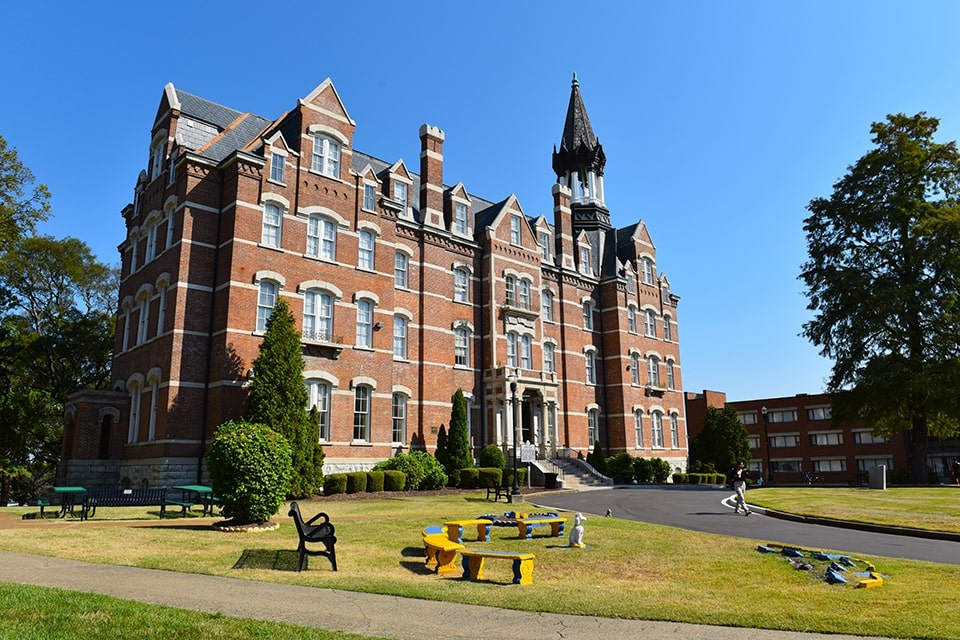Jubilee Hall at Fisk University. Photographed by Robbie Jones.
RGA is proud to announce that a cultural resource evaluation authored by our very own Robbie Jones, Principal Senior Architectural Historian and Branch Manager for RGA’s Nashville, Tennessee office, was selected by The Cultural Landscapes Foundation this year as part of their annual Landslide Report. The Cultural Landscapes Foundation (TCLF) is a nonprofit organization that aims to educate and engage the public by “connecting people to places.” TCLF’s annual Landslide Report is one of four core programs that are employed to achieve this mission, allowing the organization to showcase and bring attention to important and often at-risk locations.
This year’s Landscape Report broke with tradition, opting to feature the landscapes and locations of seminal protest sites across the United States, rather than the threatened landscapes that have been showcased previously. These locations represent the living history of a diverse range of public protests and the issues that spurred them, including Civil Rights, Native American rights, LGBTQ rights, anti-Vietnam War activism, sovereignty, and fair representation. As TCLF puts it, these historic properties “have the power of place to serve as portals for re-engaging with the stories of events that were pivotal in the nation’s history.” The title for this year’s report is “Demonstration Grounds: Public Protests that Shaped American Attitudes and Ideals”.
Thirteen such locations were chosen this year, including the one nominated by Robbie Jones: Fisk University, a Historically Black College and University (HBCU) in Nashville, Tennessee. The university, founded in 1865 as the Fisk Free Colored School, would eventually be the site of a famous address by W.E.B. Du Bois in 1924 that called for the resignation of then-university president Fayette McKenzie. This address inspired protests and a strike by students that lasted for nearly a year, resolving with the departure of McKenzie in 1925 following public and trustee backlash due to his use of the police to arrest peaceful protestors.
The TCLF notes that while the significance of Fisk University and its place within the annals of African American education is well-documented online, this history is disconnected from the actual locations that it took place in. For example, the University was listed as a historic district in the National Register of Historic Places in 1978 due to its long-lasting existence, however recognition of the protest events was curiously omitted from the nomination. In an effort to correct this lack of connection, TCLF’s campaign is not only to raise awareness for these historic locations, but to provide avenues for readers to get involved with their preservation and maintenance so that these sites – and the history they contain – are not lost to time. For Fisk University specifically, the Landslide Report documented the lack of physical interpretative and memorial signage on the campus – as well as the omission of the protest events from the campus’s historic district nomination – and provided venues for readers to contact individuals working to ameliorate this issue.
As stewards of local and national heritage for over 36 years, RGA is well versed in the importance of raising awareness and preserving the history that surrounds us. We would like to commend Robbie Jones for his part in the preservation of the history of Fisk University and congratulate him on the selection of his Landslide Report nomination!
This nomination was based, in part, on research that RGA conducted for the Nashville Civil Rights Movement Documentation Project completed in 2023 for the Metro Nashville Historical Commission.

